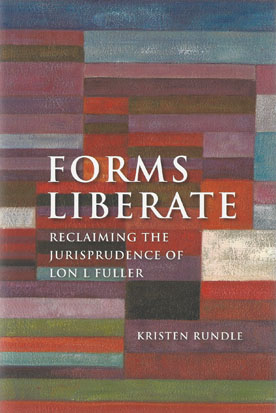
Lon L Fuller's account of legality is widely accepted as the classic 20th century statement of the principles of the rule of law. What is much less accepted is his argument that a necessary connection between law and morality manifests in these principles. As a result, his jurisprudence continues to occupy a marginal place in a field dominated by H L A Hart's legal positivism and Ronald Dworkin's interpretive theory of adjudication.
In Forms Liberate: Reclaiming the Jurisprudence of Lon L. Fuller, Kristen Rundle offers a close textual analysis of Fuller's published writings and working papers to dispute this prevailing assessment of his contribution.
Fuller's claims about law and morality, she explains, belong to a wider exploration of the ways in which the form of law introduces meaningful limits to lawgiving power through its connection to human agency. By reading Fuller on his own terms, Forms Liberate demonstrates why his challenge to a purely instrumental conception of law remains salient for 21st century legal scholarship.